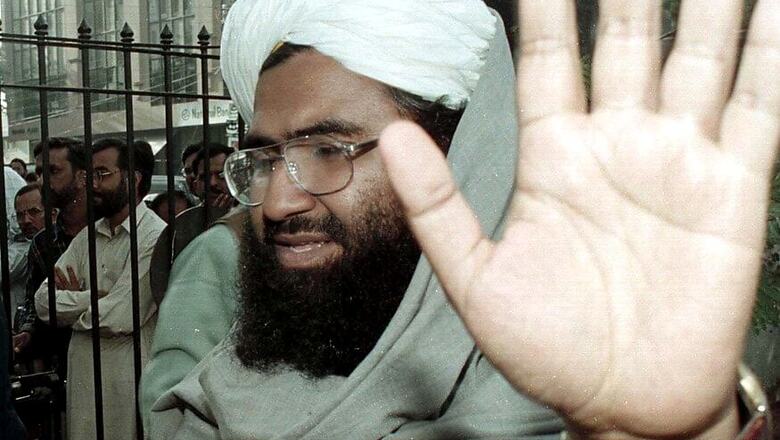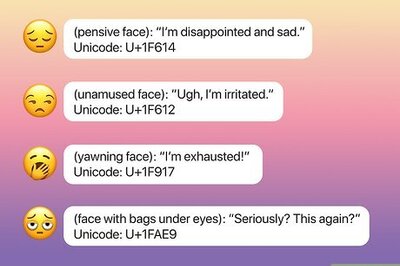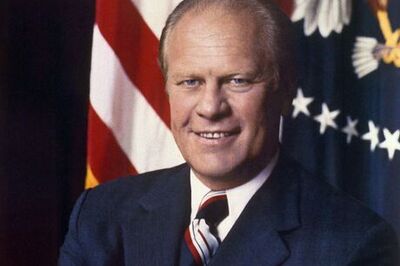
views
The Pulwama attack, following which tensions have heightened between India and Pakistan, indicates "revival and regrouping of the terror outfit Jaish-e-Mohammed in Kashmir". Experts say that a suicide attack and using of local people is itself a cause of great concern.
The strike was the bloodiest since the May 2002 attack at Kaulchak Army Cantonment in Jammu.
Experts have weighed in how the terror outfit recruited a local to carry out the suicide attack is a big deal in itself. Speaking to News18, Christine Fair, associate professor in the Security Studies Programme at the Washington-based Georgetown University, said that most of their fighters were non-Kashmiris, so “to get a local, Adil Ahmad to bomb himself up is a golden bullet."
Last year, as rumours started doing the rounds about a new JeM chief in Kashmir, police forces had said that they were still trying to ascertain the details.
While there are no hard facts to prove that Jaish as an organization is bigger than Hizbul Mujahideen or Lashkar-e-Taiba in the valley, even as it is widely known Jaish has, more or less, got Hizbul to work on logistics for carrying out fidayeen attacks in the past, Thursday’s attack questions and perhaps changes the narrative.
Jaish’s founder Masood Azhar was released in December 1999 by India in exchange for passengers of the Indian Airlines IC-814 that was hijacked and flown to Kandahar. Azhar founded Jaish in 2000 with help from Pakistan’s intelligence agency ISI, the then Taliban regime in Afghanistan and also Osama Bin Laden. But two years later, Pakistan was forced to ban the outfit after the United States of America declared it a terror outfit towards the end of 2001.
It is imperative to note that Azhar was the general secretary of the Harkul-ul-Ansar in 1994 and as per the South Asia Terrorism Portal, he was on a mission in Jammu and Kashmir when he was arrested.
Despite pressure from the international community, Azhar continued to exercise his ambit in Pakistan. In 2004, Jaish built a sprawling complex in Pakistan Punjab’s Bahawalpur. Jaish had by then split into two groups, and the one that opposed Azhar had pledged its allegiance to Pakistan’s Taliban, Tehrik-i-Taliban.
Azhar resurfaced in 2014, after lying low for several years, to hold a public rally in Pakistan-occupied Kashmir to launch his book. A year later, in 2015, right after Prime Minister Narendra Modi visited Pakistan for then PM Nawaz Sharif’s granddaughter’s wedding, Jaish attacked the Pathankot airbase, killing seven soldiers. Pakistan Punjab’s law minister announced that Azhar had been taken into protective custody but it could not be deemed as an arrest until his involvement in the attack was proven. Jaish, however, released its own statement, denying any such development.
It is also imperative to note that Azhar has continued to field his family members into attacks on Indian soil. In 2017, Azhar’s nephew Talha Rashid was killed in an encounter in Kashmir, post which Azhar is said to have intensified the outfit’s strategy in the valley. Another of his nephews, Mohammad Usman, was killed in Tral. Azhar’s brother, Abdul Rouf Asgar has been on the radar of intelligence agencies for the longest time and he was also named in the NIA chargesheet for planning the 2016 Nagrota attack.
Thursday’s attack in Pulwama also comes just days after Azhar’s brother reportedly said, in Pakistan Punjab, that Afzal Guru’s hanging would be avenged soon.
Fair notes that both Lashkar and Jaish are two tools of Pakistan’s ISI. Infact, the revival of Jaish now stems from Pakiatan’s support from China which refuses to blacklist Azhar. Interestingly, last year, when such a move to blacklist him was blocked by China, Azhar threatened the Modi government with dire consequences over the building of Ram Mandir.
Additionally, steadfast support to Jaish’s terrorist activities is said to have increased significantly after its biggest contender in Pakistan, Hafiz Saeed’s Lashkar-e-Taiba decided to plunge into mainstream politics and launched its political outfit too.




















Comments
0 comment